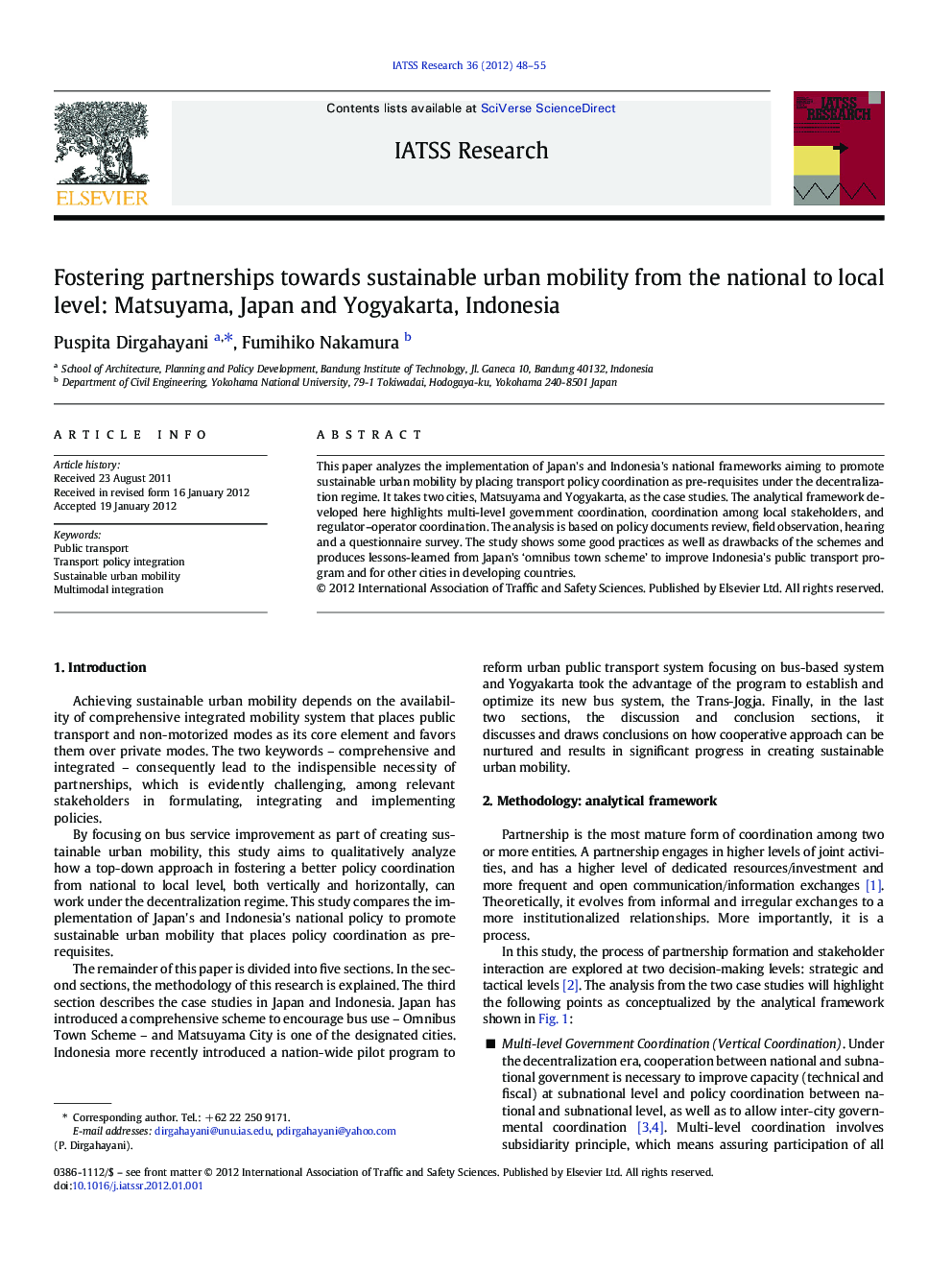| Article ID | Journal | Published Year | Pages | File Type |
|---|---|---|---|---|
| 1104621 | IATSS Research | 2012 | 8 Pages |
This paper analyzes the implementation of Japan's and Indonesia's national frameworks aiming to promote sustainable urban mobility by placing transport policy coordination as pre-requisites under the decentralization regime. It takes two cities, Matsuyama and Yogyakarta, as the case studies. The analytical framework developed here highlights multi-level government coordination, coordination among local stakeholders, and regulator–operator coordination. The analysis is based on policy documents review, field observation, hearing and a questionnaire survey. The study shows some good practices as well as drawbacks of the schemes and produces lessons-learned from Japan's ‘omnibus town scheme’ to improve Indonesia's public transport program and for other cities in developing countries.
► We compare the implementation of national policy to promote sustainable urban mobility that places policy coordination as pre-requisite in Japan and Indonesia. ► We develop an analytical framework highlighting multi-level government coordination, coordination among public sectors entities, and regulator–operator coordination. ► Japan's ‘omnibus town scheme’ which mandates integration between urban, network, and traffic sectors through the creation of unified omnibus town plan initiative formed by local stakeholders provides useful lessons to improve Indonesia's public transport improvement program.
